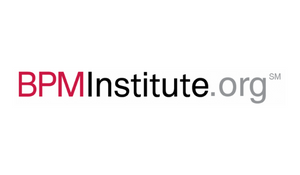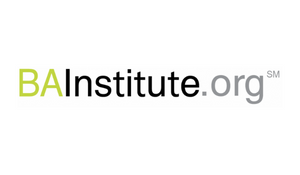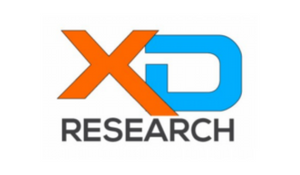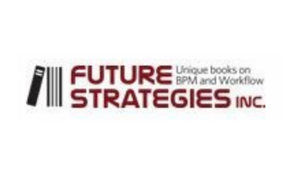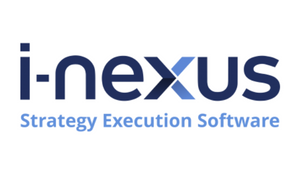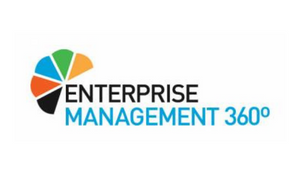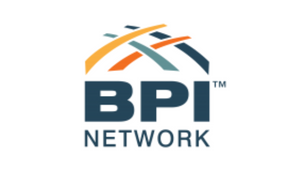
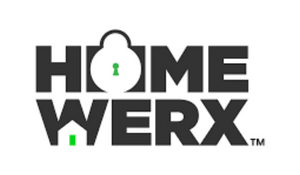
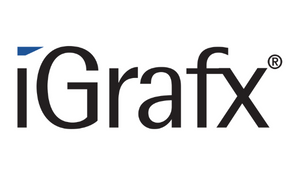
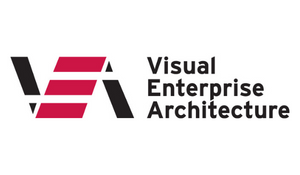
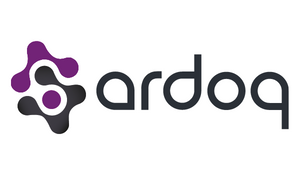
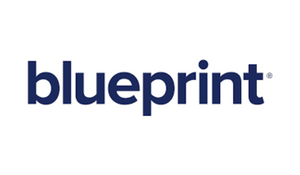
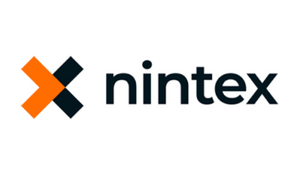
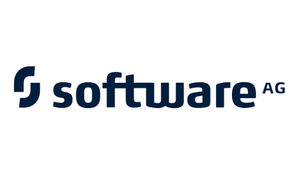
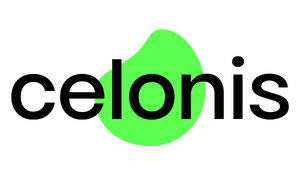
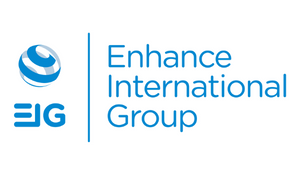
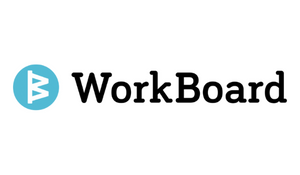
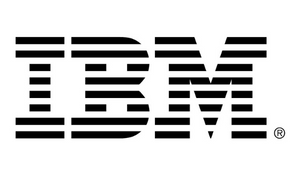
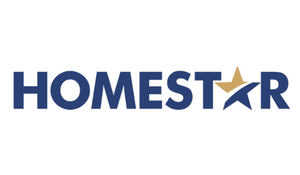
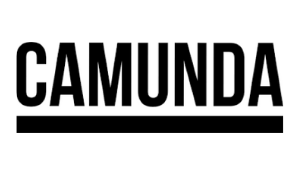
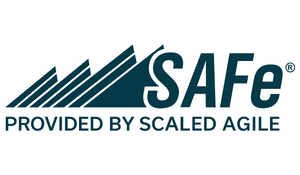
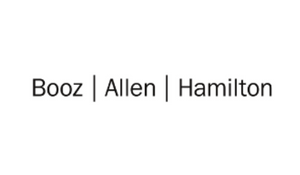
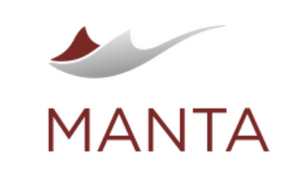
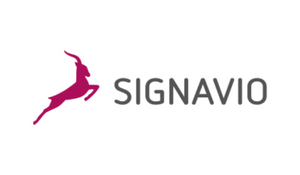


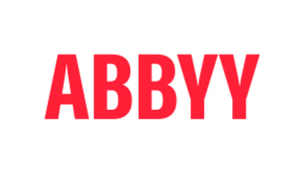

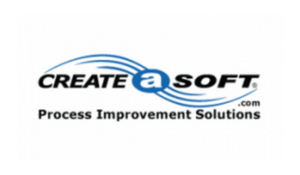

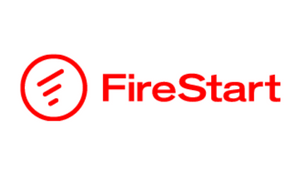

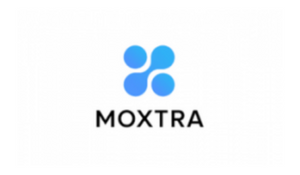
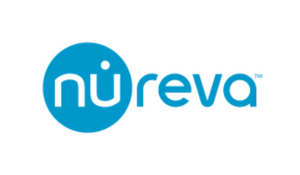
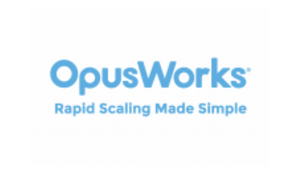
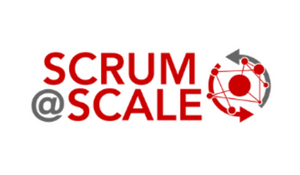
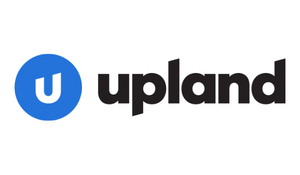
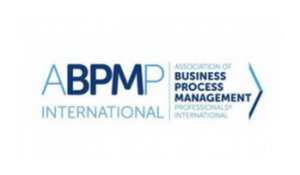
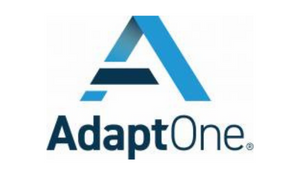
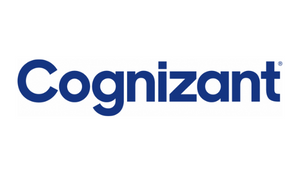
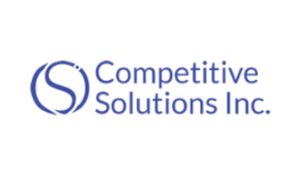
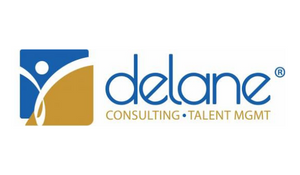

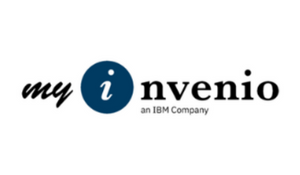
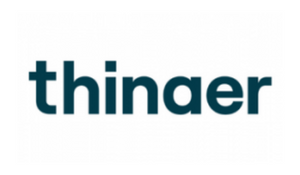
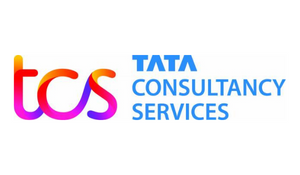
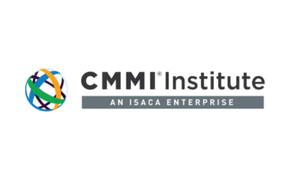
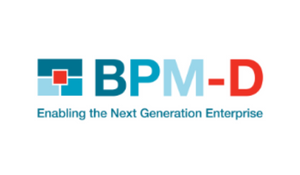

Courtesy of Cisco's Yosi Kossowsky, below is a transcript of his speaking session on 'Leading and Adapting Through the Unexpected' to Build a Thriving Enterprise that took place at BTOES Cultural Transformation Live, A Virtual Conference.
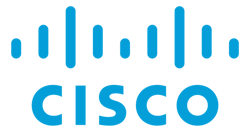

Session Information:
Intro:
In the wake of the current global pandemic, people leadership skills have gone from nice-to-have to critical. While many companies are responding by offering trainings that emphasize communication and empathy, few of these programs actually give practical instruction about how to achieve this change, and employee pulse surveys reflect this lack.
Key Takeaways:
Session Transcript:
You'll see, please do join us, turn on your camera, and join us. ... Leads the Employee Engagement Change Management Practice for Cisco's Operations Organization. Has extensive experience Developing People Focus Change management strategies, that directly support Company's business objectives. He's passionate about leadership development and enabling world-class, highly motivated teams that enhance and amplify business outcomes yossi, I'm so excited to have you here. Thank you so much for taking the time to share your expertise from Israel to the world.
Thank you, Josie. It's really a pleasure to be here, and as you know, you and I were chatting just a little bit beforehand, and it's an amazing experience to be able to do this remotely, to do this virtually to reach a lots of different people in different ways than we were before, and it goes directly into talking about the topic today.
So without further ado, Just say you'll let me know if for any reason, people can't see my screen.
It looks good, it looks, it looks OK, Yeah, it looks good.
OK, great, I'm doing I'm getting that Blackening again. Hold on one second, everybody, I had some technical difficulties beforehand, so hopefully it will all fix itself.
So, what I'd like to spend this time talking with you guys about is leading and adapting through the unexpected and the how do we approach and respond to our environments when we are still working, and needing to get outcomes and results.
But so much has changed around us.
And I've had the opportunity, both within in the company within Cisco, as well as outside in, talking with lots of others about, what are these challenges?
What are we doing to respond to them effectively, and how do we deal with the environments not in a way that we want them to be, but rather in the day and the way that they're, That they're showing up.
So, I apologize. It looks like my screen is flashing a little bit, so maybe yours is also.
You'll see your screen. It looks great.
So, one of the one of the things that we've started looking at is our Legacy and the part of the legacy challenges that we're having is that we have always asked leaders to act and lead in a certain way.
We've focused on the environment that they're in, and that has been a work environment with our work focused team that we'd have the ability to make believe, that we have different personas at, play. We have the work persona, We have the home persona, and we've got to do the ability to separate priorities. When you're at the office deal with the workings, if you've gotta deal with your personal things, deal with them outside of the office, and that's how we've trained our leaders and our teams to deal with the world.
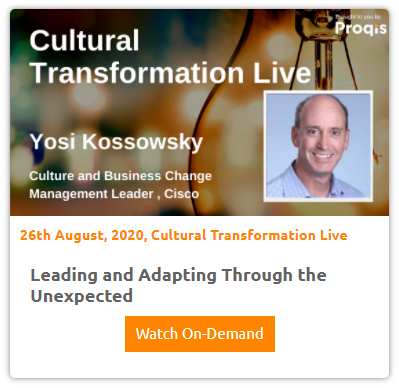 This year, it's all been different.
This year, it's all been different.
And I was looking for a term that really more effectively described, what is the experience that we're having, and, and I came across this word human ship. And I think that it really kind of captures what we're dealing with.
And so urban dictionary has has a definition that human ship is about focusing on what's important to us, the relationship between humans on a level that recognizes the similarities and Barrington all people.
And that we focus on what's important in our relationships, such as the need for love, to live successfully, and to be prosperous.
In this environment, the lines are blurred.
And we no longer have the opportunity to say that there is a work balance and a life balance. It's all it's all meshed. We don't have separate personas. We had merged integrated overlapping personas. Rare is it that I have a meeting with a colleague, or a networking meeting.
Or family doesn't play some role in that conversation.
Even in the background, people coming in, people talking people, walking through, and people, having to cancel meetings, or changed readings at the last minute because of other family priorities.
And so whether we like it or not, the leaders of today are are forced to deal with emerged environments and to call upon themselves to have other skills that we didn't need before. And so I'm calling that human ship.
The challenges that we're, therefore, talking about: what does that mean in terms of skill sets? That we're not necessarily trained in, or we're not used to utilizing to get us there.
The world that we live in today, and, you know, this is another thing that I hear common people to talk about, is the idea of going fast.
Going back to the office, going back to the way things were.
And the reality that we have is we're linear people. We don't go back. We only go forward.
And even when we try to recreate an environment or recreate an experience that we've had, we know that it rarely provides the same experience as the one that we nostalgically held on to.
So, part of that paradigm shift is start holding onto the fantasy that we get to go back. We don't get to go back to the office. We gotta go forward, and hopefully we'll figure this out. Well, we'll get herd immunity will get inoculations kids will be able to go back to school and adults will be able to walk back into an office and get on airplanes.
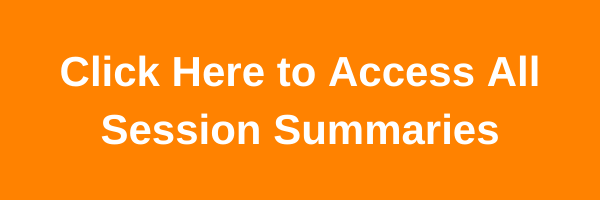 We're never, we're never going to go back.
We're never, we're never going to go back.
And the environments that we find ourselves in, whether you're living alone, whether you've been in isolation, whether you've got little children who are not going out of the house, not going to school and not going to summer camp, Med school starting out, Whether you've got elderly family to take care of, whether you've got illnesses, your whether other, whatever those family challenges are.
In insurance sense, a border has been broken, and we don't get a, we don't get to just stop those realities, again.
And, and our awareness of world events has always been pretty keen, especially as we've been in the internet age. We know what's going on in different parts of the world, very quickly.
But there seems to be, especially, in the last 2 to 3 months, a heightened sense of awareness about what's going on in different parts of the world, certain levels. I Don't think that, in my lifetime, We've ever had a global.
Yeah, Yoshi your audio stopped.
OK, hopefully I'm back. I don't know why my audio dropped out. But there's just technical difficulties that are par for the course today.
So I don't think that we've ever experienced in my lifetime, what ... has done, which has been a worldwide shared experience. And it has brought us together in different ways. It is heightened our since our sensory perception of the world and what other people are going through. And that's also not gonna get to walk back. We don't, we don't get to cancel our awareness or knowledge of that experience.
And so, with that, we are dealing ultimately in a different environment. I'd like to share a personal story of this, and how that's affected me, because it leads into an example of what I covered with my teams this year, what we've put into practice, and what we felt other teams put into practice.
That I'd like to share with you.
So, and this year alone, my, I'm not sure the screen is changing or updating.
Beside the ocean, OK.
So hopefully, we'll get that go, and just say, it's just been been a day for my technical difficulties. So my dad unfortunately passed earlier this year. I've taken on additional responsibilities at work.
My head, my first granddaughter, and am I my wife's out of work.
Um, and my mom does on her own.
And as I This list was something, as I was preparing, this, this, this, this presentation, I was thinking, What is top of mind for me?
And it was fascinating that about list, only one of them is work, Yet I spend most of my time in any given day focused on work, but yet where my mind and where are my thoughts are and where on juggling in-between is actually mostly not work.
And the emotional impact of that that it has on my work is something that we haven't been forced to deal with and face effectively before.
So, a number of months ago, right, when the covert started, my leadership team came to me, and they said, We need you, and your team to take on an additional project, and the, they told us, no, Some explanation about why it was important, but most importantly, they were very clear about the deadlines.
And I brought this back to my team, My team was, We don't have the bandwidth. We don't have the recent, the bandwidth and the resources to get this done in the timeframe that leadership is asking. So, we went back to leadership and we, you know, explains, listen, this is, this is our current situation, this is what we're dealing with.
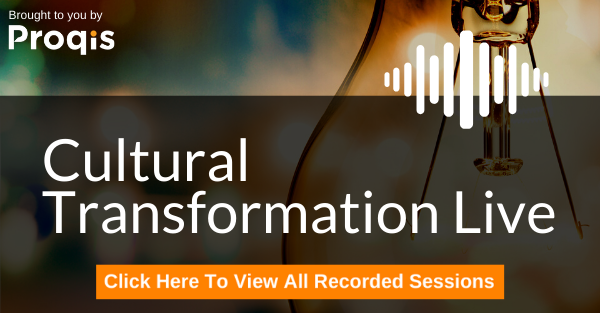 Please see if we can either offload some priorities or we can pass this project to another team. And leadership said, No, I'm sorry.
Please see if we can either offload some priorities or we can pass this project to another team. And leadership said, No, I'm sorry.
You guys gotta do it, just buckle up, go the extra mile and get it done.
And you know, it's interesting. We have a conscious culture were, were encouraged to speak our minds to say, no when we, when we feel that it's we need you. And and yet there was so much uncertainty happening around Kobi that.
It just guts thrust upon us.
So what was the result of this was a feeling of frustration.
Some of the people on the team were angry disheartened, overwhelmed, and I guess because of all of the different things that were going on, I started to take to myself, wait a second.
This is not, this is not the same thing as the past because there's so much more going on. And these reactions that I'm seeing are not the same level and depth of reactions that I'm used to. They're more what are we going to do?
And so luckily I've got a background in coaching and leadership development, emotional resiliency, and I started taking a look at my team through that lens and saying what are the motivators for human behaviors?
What is it that really played out here with this leadership?
What was our my responsibility as a leader, what was my team's responsibility? What was the leadership's responsibility back to me? And what didn't play out that we ended up in this situation.
So I had to tap into what I'll call self-awareness because to me the beginning of every exploration, when we're talking about this depth, this deepening of our awareness, of supporting our teams, leading through this environment that we're currently in.
It's going to take a certain level of self-awareness. And then I just sat down with a piece of paper, and I said, Let me look at what is the, the flow of the event that took place with the leadership?
So there was an event that came to me, and they said, we want you to take on this project.
There was my reaction to it, which was, OK.
I don't, I don't think we have the bandwidth to take care of it.
I made a decision. to go back to them and tell them that. That was the action I took. The event came back again, that they said, Sorry, you still have to do it.
I had a reaction, which, in this case, was, I didn't argue.
I just took it on the chin, as it were. I went back to my team and I said, OK. Kimi made the decision has been made. We got to take this on.
They had their reactions and then the decisions about how they were going to react to the situation and then taking action. So I'm saying, OK, So this is a situation, event, reaction, decision, action, that's constantly playing out in our lives.
Um, as I sat with it for a little while, I realized that the tough nut here is understanding the reaction piece. That's the hard part. Is the self reflection. What is driving my reactions, what's triggering them? What can I do about them?
How do I help myself and ultimately, how do I help my team take, get a handle on our reactions.
So, luckily, a number of years ago, as I mentioned, in the Emotional Resilience Training, I did, the one of the teachers, a guy named Kevin Village from the UK. Introduced me to what he calls the Lily Pad model, and the Lily pad model is.
Drawn this way, because, and hopefully, it showed up on the screen, because my screen still flashing.
That the Lily pads sit on top of the water, and that is our emotional experience. I'm sorry, our behavioral experiences, these are the things that we can see openly, about others.
So he breaks them out into these three areas of being rigid, deflationary, and inflationary. And, it's just to be able to categorize the different types of behaviors that we're seeing.
So, we can see if somebody is being stubborn, we can see if somebody is being aggressive, we can see if somebody's being judgemental, we can see if somebody is being playing the victim. Oh, woe is me.
So we can see the behavioral reaction, but we don't know what's beneath the surface. So the idea of the stems of this model is that those are those are the things that we have to tune into ourselves and ask ourselves some deeper questions. And the questions are: What are my beliefs?
My my rules, my values, my biases, that are supporting and, or triggering these responses, these behavioral responses, we will also different names for, these could be our filters are conditioning our mindsets.
And so in the previous talk, because it was talking about those types of things, our mindset and the idea of what I'm sharing with you is a model that I hope that you feel that you can take forward and start to better understand ourselves and help our teams better understand themselves, for a result that we'll talk about in a second.
So beneath all of that, like in the soil of the root system, is our emotional Groundwork.
And it tends to be that these are emotions that we might want to avoid experiencing our feelings.
So for example, if I was handed this project and I didn't want it or didn't feel that I had the bandwidth to do it.
So there's a belief there and that belief system ultimately is playing a guarding or protection role against some emotions that I might not want to experience like in competence or being unsure.
So, this model is there to be able to say, OK, there's, there's, there's the behavioral level that I can see and there's something that I can dig deeper. Now, if we take a look at this, the deeper part, the beliefs, the rules, the values, and the biases, then it's just a matter of asking ourselves some questions. What is going on here? What are my beliefs around my reaction?
.png?width=742&name=Screenshot%20(4).png) So, in my reaction to my leaders, I felt that, but there was two reactions, and one was, also, we have the bandwidth, and then, when they came back again, and they said that, we still got to do it, and I didn't argue the point. I didn't stand up for my team, I wasn't assertive.
So, in my reaction to my leaders, I felt that, but there was two reactions, and one was, also, we have the bandwidth, and then, when they came back again, and they said that, we still got to do it, and I didn't argue the point. I didn't stand up for my team, I wasn't assertive.
I said, OK, so what are my beliefs?
What are my rules, values or biases that triggered or influenced or impacted that response?
And the, honestly, that, the answers came pretty quickly.
I realize I have some beliefs around needing to show confidence to others. I realized I had a rule about not saying no.
I realized I had beliefs about asking too many questions of them. Why? Why, why this was a priority, why our team, you know, why we can offload some of our priorities?
Conflicted with a belief I had about, competence showing up if I asked him any question, and then another belief around that a valued person doesn't argue, they just take on, they just say yes.
And, OK, so now I've come and I've exposed these beliefs to myself.
But the harder question then is, so what, what do I do with that? So the other question, I had asked me, what are my goals? What am I bigger goals? What am I work goals? And I realize, I have ... around being successful, I have work goals around obtaining, additional responsibility, moving up, the chain being, having positive relationships, and being a trusted resource. And so the question then, is if I think about those goals.
And just going back a second to, to those beliefs.
The question is: Do those beliefs support these goals? Is there alignment ultimately, between these two? And ultimately, being successful is not about showing confidence. It's about getting the job done.
Getting on more responsibility is also about showing that you're thoughtful, That you can handle conflict, that you can make the tough decisions that you can take on additional responsibilities, but that's self-awareness.
And so what I realized quickly was that my beliefs were not supporting my goals.
So I'm going to take just one side note here, as I was starting to do this investigative work around reactions.
A colleague of mine, Andy, came to me, and he said to me, No.
Who do you generally work, if, you know, these types of questions through with, And I'm like, I don't really work them through with anybody. And he said, that's really kind of odd, you know. You're a coach. You go help other people. Who, who's your coach? And I said, I don't have one, and he said, Why not?
And I realized I had a belief around asking for help, that the Coach I don't need help, I don't need to ask for help. And it was a real epiphany to me that I had that belief as well, which I've discovered not only that I have, but other people have as well.
But more importantly, what Andy said to me, that humans are social beings, and we need social support. We need to help and work with each other, because we need that mirror. We need somebody else to reflect back to us, the things that we don't necessarily see about ourselves.
And, ultimately, a lot of what I'm sharing with you came out of the fact that I built a support network, my co-workers and colleagues that I can talk things through with to get that reflection, to get that added insight. And so, I'm putting it in here, because while it's not necessarily within that cycle, it's something that I would be remiss not to to cover. And encourage everybody, if you don't have a support network.
Then, you know, the people that are on on this seminar today, we're all connecting, as Josie said, on LinkedIn and conversations.
We have great opportunities to build our networks and build a support network to help each other, because because these are just different than the way they were, and I don't know what that, what the future is going to hold.
So, having that, OK, back to our Reginald regularly scheduled Program, looking at, at the decisions. So understanding now that I have these beliefs that are not aligning to my goals?
I have an opportunity to make decisions. And it's around deciding, what do I want to do differently? Or first of all, asking myself, What would I have done differently back in February and March with this interaction with my leaders?
And understanding that, I don't have to give it to these beliefs Now that I'm aware that there are these beliefs that are not supporting me being successful, what decisions could I make?
Then that could lead to, well, what actions, what I take, and just having that dialog with myself is very, very powerful. There's a gentleman named Jonathan Haidt, who wrote a book the Righteous Mind.
He is a moral psychologist. I think, I don't remember which university. And he talks about doing and he's done a lot of a lot of research into this. that we respond instinctively first to our environment. And then only secondly, do we respond cognitively so that our first response and in the book is for the righteous mind, why people argue about religion and politics. And he says that most of them are arguing about religion and politics because they're very emotional topics. And we respond instinctively to them.
And then we'll use our cognitive abilities to justify our instinctive response.
And I found that, that very much was playing out here as well, was the beliefs which are influencing my instinctive response are playing out. And then I'm trying to justify them, we're seeking.
 And by going through this process of understanding my, my limiting beliefs and thinking about what I would do differently next time. as well as allowing me to influence my future instinctive responses. And we've tested this out over the last number of months with a couple of different teams. And we've see amazing results in people showing up differently if people reacting and responding differently.
And by going through this process of understanding my, my limiting beliefs and thinking about what I would do differently next time. as well as allowing me to influence my future instinctive responses. And we've tested this out over the last number of months with a couple of different teams. And we've see amazing results in people showing up differently if people reacting and responding differently.
So, I sat down with my team, I shared with them this model, and we started playing through this with different scenarios, and we started finding that, it was actually also building trust on the team. It was giving us insight into each other, into our challenges, and helping us actually work better together.
So, once again, just to close up the action part.
What we've done now, is that when we are aware of, what I do with myself, and I do with my team, is that once we're aware of our reactions, and that we were able to use our peer groups to reflect to understand, think about the decisions we want to make, and then put those into action.
And one of the nice things that we've now done as a team is we've made it a team ritual where we are whenever we're faced with an event, certainly ones that affect the team. We start to go ahead and play this out with each other and work through this flow. And it's definitely changed the team dynamics a lot as well.
It's really help also bridge in this virtual environment.
Got depth that you will almost get in an office environment where you get to just hang out with people when you're not in a meeting.
It's helped Rachel, lot of those relationships in those depths.
So, now we have to walk a little bit into the neuroscience part. Because what we're ultimately talking about is changing habits.
And so, there's another great book, The Power of Habit, and he talks about what, how our habits formed and how our habits broken and reformed. And so, there's three elements to that. There's the trigger, there is the behavior to the habit and as the reward mechanism and so really bored mechanism, that really makes the habit of habit. And Market here is notice very, very Well, they'd understand that.
That, how to give us a reward for buying something And Or, how to do jingles that are the trigger to something? There was a story a couple years ago about Dunkin Donuts.
I think it was in China or Japan that they would create in the busses smell of the donut shop and we put it as ... as well, as the busses we get close to a Dunkin Donuts. And so when people would get off the bus, they would have already been knowing the donuts in the bus. It increased spider ship of donuts like by 40% or something. I don't remember the exact statistics.
And so, we're very susceptible to this.
And so, when we look at the idea of making the cycle of event reaction, decision action into a habit, and also being aware of looking at what are our beliefs? What are our rules? What are our values, What are our biases? We realized that we had old habits to break in, New habits, to form neurosciences, taught us that.
Neural pathways are formed when we form habits. So, if you imagine a beautiful field, an empty field, that has, you know, not, people have not walked through it, it's all green, and it's all graphic.
As you start walking a path down that field, a repeated path that starts to form that habit, a neural pathway is created.
When we want to form a new habit, we've got to start treading down a different part of the field.
Breaking down the grass, tromping it down, making furrows in it, form a new habit.
The challenge is is that the old habit doesn't go away. The old path doesn't get overgrown instantaneously. It hangs out and can hang out for quite awhile.
And so, this is the reason why, even when we're working on forming a new habit, and we do all of the things to form new habits, we put post it notes up. We put reminders. We've got accountability partners.
We still fall back into old patterns easily enough, because the old pathway hasn't overgrown. And there's different discussions about how long that takes to let go of old habits and form new habits.
The best thing that we've learned is accountability partnerships to help us do this and make this a habit. And we actually worked with other teams as well, and we're seeing it's interesting, and amazing changes. I would be remiss if I don't cover De ... to to what else knocks this idea off?
No off course, that keeps us from not only making it a habit, but staying steady with it. So, the first one is the do. As I say, not as I do model leaders who don't walk the talk, who aren't, who are telling their leader their teams, you become more self-aware. You become more aware of what are your reactions, and you guys take ownership and responsibility, but the leader doesn't do that themselves. The team won't follow along.
And what we've seen is that in organizations, where the leadership is getting up and in front of social justice, covitz situations, the company engagement is way, way higher than that, for those organizations that are not doing it. And there's been lots of stories on the Internet, about different companies and how they're doing.
So, do, as I say, not as I do, is a big derailleur. Another tremendous derailleur is doing things the old way, and what I mean by that is, we have a human condition that, when I'm asked to do something new, we ask ourselves, what am I already know, how to do?
And how do I apply what I already know how to do, to this new thing that I'm being asked to do?
When we look at it, honestly, what we're really seeing is aren't we're doing new things, the old way?
And what I started doing my teams, as we say to ourselves OK, for being asked to do a new project or we're being asked to take on a new model of behavior or introspection or understanding. I asked them, what would the ideal state be? What would the ideal practices, behaviors beliefs?
B, if we were to be introduced to this from, from fresh, without trying to apply what we know.
And we make, we get a list of what those behaviors, those mindsets, those attitudes, those approaches, are. And we say, OK, where are we today?
And where's the gap, and how do we close the gap?
So that we ultimately get to try to do more of the new things anywhere, way.
 It's one of the things, by the way, that, that absolutely kills almost every change program that I've been on, is our with our desire to do, the new thing, the old way. So it has a double benefit.
It's one of the things, by the way, that, that absolutely kills almost every change program that I've been on, is our with our desire to do, the new thing, the old way. So it has a double benefit.
Another derailleur is the lack of patients, We are really good about recognizing that if someone's asking me to change, I want time, I want time to change. But when I look at somebody else, I'm expecting them to change on a dime. Like that, why aren't you changed already?
And that lack of patients and helping others go through change it is critical. If we're going to ask our teams to be more resilient, and this works in this time of working. If we're going to ask leaders to change the dynamics and practice more human shift in leadership, we need to have patience because they've been trained.
They have habits that are formed doing things the old way, and now we're asking them to do things in the way we want them to do it, the new way. And so, patience is key.
But the last derailleur, well, the second last trailer, is persistence is understanding the time that it takes because a lot of times we underestimate how much time.
Then, and then lastly, and I can't underscore the importance of celebrating successes and my team we've also made this part of our rituals where as we see the changes that we're going through as a team, as we're reacting differently as we're helping other teams do this, we are celebrating the successes with ourselves and with the others.
because celebration does something.
I don't know in our, in our genes and our cells that allows us to make things more real and more solid and it takes that time frame of Habit and quickens it up quite a bit.
So what are the outcomes?
I've hinted towards these, but we've seen two sets of outcomes on the individual basis in a corporate environment. We've seen people self-awareness grow. We've seen self trust, sense of worth. Competence, the feeling of competence. Be resilient and a growth mindset, absolutely shutoff in this time. We've also seen predictive trust on a team grow.
We've seen that you've become more Agile, and not the capital Agile, as in Lean, or six Sigma. Just be more adaptive. So, maybe that word I should put there is adaptive. We've been more transparent and honest with each other. We recognize that we have shared values, and we talk about our shared values.
We've become more effective communicators, and team feels more empowered to get things done because the beliefs and the reactions to those are on the table, We understand what's driving it and we're therefore able to make different decisions that drive different actions.
So, I'm a little bit ahead of time, but just two more things.
So, the practical strategy, because, you know, in my talk, I promised Jose that I would give practical strategies, and I call it my five, See? If there's one thing that you take away from today, it's the five C's pleats, co-operation, whether or not we realize it or not, we are either being co-operative or competitive. In every one of our interactions. We are not every neutral.
We might think that we're neutral, But really, when we're being neutral, we're being more usually co-operative.
But this is about or of setting a real intention of, do I want to be co-operative with the people that I'm working with?
Because it sets down intention, set a different way of acting, interacting, and reacting to our environment. And it is the baseline of trust.
We're talking a lot about empathy, and, you know, in today, especially with our social justice and all of the awareness and how beautifully it spread around the world.
To get to empathy, we start off with compassion, Compassion I'll define as, I feel for you, where empathy is, I feel with you, and it's easier to feel for somebody than it is to feel with them.
If we're not familiar with their lifestyles within our environment! We talk about empathy is walking with somebody walking in somebody else's shoes, and that's not a simple thing to do. And so having compassion, how does the intention of compassion feeling for them allows us to start to fill with them?
The clarity is the most interesting one. And this is way ..., existing is the lack of clarity that we have in our communications, right. Now, I'm having a one size of communication I'm talking at you. I don't even know what you understand. I don't know what I'm not being clear about when I'm in a meeting.
It behooves me to be clear and to four and to confirm clarity. What did you understand that? I said, And so this kind of goes with the confirmation.
And, you know, I've been in meetings where a leader has said to the team, we need to be more strategic about this project. And the team says, OK.
And then I'll, I'll break my hands and I'll go, what does that mean, to be more strategic?
And everybody will give me blank stares and they'll go, well, I think it means this, or maybe it means that we need to confirm.
And then lastly, we need to be consistent because if you think about all of your relationships, if you can't trust the consistency of that relationship, how people are going to show up how people are going to react, it degrades trust. And without trust, we really do not have a healthy working environment. So the five C's.
So, thank you, I'm glad my technology worked throughout the whole time.
If you guys contact me on LinkedIn, I will share with you also a whole bunch of the links that I used in my day-to-day life that also went into building this, this deck, OK, Josey, back to you.
That is fantastic, Joseph. Thank you so much for sharing that journey with us. We had a question that's coming year. We have about seven minutes for Q&A. So, let's let's, Let's go right into it. Our first question is coming from Ramallah, in Argentina is, first of all, it's just a great session, really, appreciate all those insights. And that question is about self-awareness, and better ways of developing self-awareness, And she's curious about any tips or guidance you may have on developing self-awareness.
Absolutely, thank you. So the first thing that I do is ask myself, what am I feeling right now?
And it's funny, it's a simple question.
And the answer is sometimes interesting, because when I first started practicing, I had no idea what I was feeling. I never had tried to name my emotions before.
.png?width=742&name=Screenshot%20(4).png) I'm like, I felt it, but I couldn't name it. And so, to me, the first start about self-awareness is asking myself, What am I feeling right now? Especially, if I'm feeling uncomfortable.
I'm like, I felt it, but I couldn't name it. And so, to me, the first start about self-awareness is asking myself, What am I feeling right now? Especially, if I'm feeling uncomfortable.
What is that on comfort, I wonder what triggered it, And to me, that's the starting point of it.
Good, keeping up with the, it looks like a South American heavy influence here. We have Marsha, Most, just Silver from Brazil, who poses the question on how? How to deal with situations like a social situation? societal situations, I should say in the context of work, right now, related to keeping authenticity.
But, at the same time, balancing some very sensitive items that are being discussed right now, related to racism, for example, How do you have, so, how can you, what is the best way of having some of those conversations in other work environments?
So, you know, it's interesting. We've been dealing with this as well. I guess, pretty bad. People are dealing with it.
And the first thing that we've started practicing, and this was one of the coaches at work, focuses on inclusion and diversity, said, Be curious, the, B, B, Positively, Intentfully curious. So, if you, if I don't understand why this is a topic, or why this is an issue, or why this is a challenge, be curious and ask the question as a real curiosity.
Tell me more why this is important to you. Why are you feeling this way? What are the challenges that you're having? And, therefore, it takes the responsibility of me having to know something, and having to answer something for you, I get to learn, I get to understand.
And then, there's an opportunity for a real dialog. But first, to understand, And that requires Curiosa real curiosity.
Very good, Our next question comes from ..., First of all, he says some very complementary things about your session, and how relevant this issues are in today's life and work environment.
I think the gist of his question is related to, how do you move organizations to this new way of thinking?
Because the way you have described, it's very positive. But there is. But, as you know, there are some organizations that there was a resist, so even having discussions about empathy, and compassion compassion, and, you know, we've got to keep separate Ally works and professional lives, right. And others are which are more welcoming. Just curious about your perspective, on how to navigate as a professional. You see a really uncertain where your organization stands.
Yeah, you know, it's funny It brings up, I thought when I got my job a couple years ago in this role, I told my boss, My job is influencing nudging and seeding I cannot change others. That's just not in my, I don't have that superpower. And so my job, therefore, is something that I think I can do, which is influence and anyone who has read Stephen Covey's seven Habits of Highly Effective People and understand the idea of circle of control and circle of influence. What I can do is influence, and that's the first and foremost answer. And by talking to you on this, on this session, I'm influencing you by doing this work with my team.
I'm directly influencing them.
And honestly, when we first started this back in March, we didn't ask to go out and spread it to other teams, Other teams, My people on my team started talking to their friends about it and influencing, and it started to shift. Now, obviously, Cisco is a very conscious company, so it's not like we needed to really do something.
However, this level of teen consciousness, our team awareness has been a wonderful thing and we haven't had to make it a change as much as we just had to be consistent about what we're doing. We're really following our five Cs internally and that we're seeing is actually making all the difference.
Sometimes slow, sometimes quicker, but it's really about the nudging and a seething and the influencing.
I love that, I think that's a, that's an incredible concept. that, that we have that power, right, to influence, as you said. We really don't have the power to change someone else. Love, that's the coolest, is France. And RSA is, says, I really appreciate your self accountability, vulnerability, and sense of responsibility.
And the question is, how do you help the level above mature? And do you challenge them to do their part? I mean, I think you hinted at that, and so I'll probably rephrase this as a bit of how do you influence the next level.
So, you know, to me, that's, it's been my biggest challenge honestly here.
but of being courageous and, and having what I would call courageous conversations.
Once again, starting from that approach of positive intent and asking my managers, my leaders, the question, are you aware of how this is influencing the team? Does that is that important to you?
And, you know, I find leaders that say to me, You know what, I want my people to just do what I say right, that I do what I do it, I think, not what I do type of thing.
There is not an immediate opportunity for conversation with that person, but what I'm finding is, is that so many of us are dealing with the challenges of home, of the changes in our environment out today. When I asked the question, What are you trying to achieve with the approach you're taking? What are you hoping to get as a result of that? Leaders are actually stopping and saying well, no, this is what I'm trying to do.
And as soon as there is starting to be reflective, there's an opportunity to take that to a deeper discussion and all I need to do is be curious.
Very good. So good. Yossi Thank you so much from Israel to the world of a real global Comey that he should get today.
We are so appreciative of your leadership, of your Vulnerability, your accountability, and sharing this concepts, and we really, really appreciate you and what you have shared with us, and I can tell you that you have influence thousands of people around the globe today by sharing your insights, and we're very thankful for that.
Thank you, Josie. I appreciate that, you guys have any on the event, so thank you, very much.
All right, take care.
Take care.
All right, ladies and gentlemen, that was your SQL South directly from Israel, and the next, we have doctor Merlino College at the top of the hour. Doctor Marlene is the vice-president of Centralized Services for Rico. And she's going to take us in a very practical application of Augmented Reality in today's post pandemic settings. And that combination of emerging technology and culture for a real-life application here of an explanation of technology, bringing together a number of the concepts that we have talked about in the last couple of days. So, I hope to see you at the top of the hour. I'll close the session for now. Thank you.

 Yosi Kossowsky,
Yosi Kossowsky,
Culture and Business Change Management Leader,
Cisco.
Yosi Kossowsky leads the culture and business change management for Cisco’s Operations organization.
Yosi is responsible for driving the culture transformation change management initiatives in Operations and for evolving the Operations-led transformational business change management strategy for Cisco.
Yosi is an accomplished business transformation leader with extensive experience developing people-focused change management strategies that directly support Cisco’s business objectives. Passionate about leadership and developing world-class, highly motivated teams, Yosi has a proven track record of delivering successful change programs that enhance and amplify the business.

View our schedule of industry leading free to attend virtual conferences. Each a premier gathering of industry thought leaders and experts sharing key solutions to current challenges.
View Schedule of EventsWelcome to BTOES Insights, the content portal for Business Transformation & Operational Excellence opinions, reports & news.
-------------------------------------------------------
Search for anything
Insights from the most progressive thought leaders delivered to your inbox.
Insights from the world's foremost thought leaders delivered to your inbox.
Being a hero is all about creating value for others. Please invite up to 5 people in your network to attend this premier virtual conference, and they will receive an invitation to attend.
If it’s easier for you, please enter your email address below, and click the button, and we will send you the invitation email that you can forward to relevant people in your network.
View our schedule of industry leading free to attend virtual conferences. Each a premier gathering of industry thought leaders and experts sharing key solutions to current challenges.
View Schedule of EventsWatch On-Demand Recording - Access all sessions from progressive thought leaders free of charge from our industry leading virtual conferences.
Watch On-Demand Recordings For FreeDelivered by the industry's most progressive thought leaders from the world's top brands. Start learning today!
View All Courses NowThe premier Business Transformation & Operational Excellence Conference. Watch sessions on-demand for free. Use code: BFH1120
Watch On-DemandInsights from the most progressive thought leaders delivered to your inbox.
Insights from the world's foremost thought leaders delivered to your inbox.
Being a hero is all about creating value for others. Please invite up to 5 people in your network to also access our newsletter. They will receive an invitation and an option to subscribe.
If it’s easier for you, please enter your email address below, and click the button, and we will send you the invitation email that you can forward to relevant people in your network.
Courtesy of Nintex Pty's Paul Hsu, below is a transcript of his speaking session on 'Improve employee productivity during and post-COVID by ...
Read this article about HP, Best Achievement in Operational Excellence to deliver Digital Transformation, selected by the independent judging panel, ...
Read this article about BMO Financial Group, one of our finalists, in the category Best Achievement in Operational Excellence to deliver Digital ...
Read this article about Cisco, one of our finalists, in the category Best Achievement of Operational Excellence in Internet, Education, Media & ...


